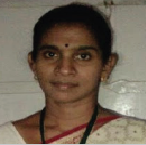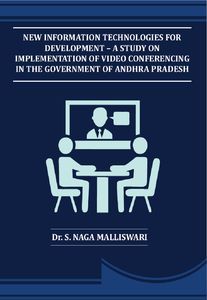
Dr. S. Naga Malliswari
Dr. S. Naga Malliswari, M.A. (Pol.Sci.), M.Ed., M.A., S.H.PT., M.Phil. (Hindi), M.C.J., Ph.D., P.G.D.C.A., P.G.D.T. & T.M., P.G.D.F.H. &T. She is working as Language Pandit Hindi in SPSR NELLORE district of Andhra Pradesh since 19th October, 2002. State Resource Person to train the High School and Upper Primary teachers from 2004 for Hindi subject. She received District Best Teacher Award from M.V.Rao Foundation, Kota, SPSR Nellore District in December, 2012. Working as a Guest Faculty of Vignan Degree College, Podalakuru, SPSR Nellore District for UG & PG students and Annamacharya college of Education, Rajampeta, Kadapa District for B.Ed & M.Ed. students. She worked as a Vice-Principal - Sir Raman junior college, Kavali and also worked as a Guest Faculty for MCJ Students in Yogi Vemana University, Kadapa for 2 years. She is a talented teacher with a forceful way of making his point very clear in Hindi language.
Read more...


